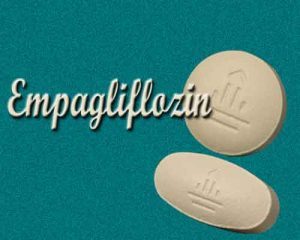- Home
- Editorial
- News
- Practice Guidelines
- Anesthesiology Guidelines
- Cancer Guidelines
- Cardiac Sciences Guidelines
- Critical Care Guidelines
- Dentistry Guidelines
- Dermatology Guidelines
- Diabetes and Endo Guidelines
- Diagnostics Guidelines
- ENT Guidelines
- Featured Practice Guidelines
- Gastroenterology Guidelines
- Geriatrics Guidelines
- Medicine Guidelines
- Nephrology Guidelines
- Neurosciences Guidelines
- Obs and Gynae Guidelines
- Ophthalmology Guidelines
- Orthopaedics Guidelines
- Paediatrics Guidelines
- Psychiatry Guidelines
- Pulmonology Guidelines
- Radiology Guidelines
- Surgery Guidelines
- Urology Guidelines
Empagliflozin also protects against heart disease in addition to regulating blood sugar, finds study

Empagliflozin helps regulate blood sugar and can also protect against heart disease, finds new study.
The researchers at St. Michael's Hospital in Toronto, have found Empagliflozin that helps regulate blood sugar for patients with Type 2 diabetes can also protect against heart disease.
The EMPA-HEART CardioLink-6 Trial findings were presented at the ESC Congress 2019 and were simultaneously published in Cell Metabolism.
The study focuses on the effect of a diabetes medication - empagliflozin - on cell repair in blood vessels and the resulting risks of heart disease. Empagliflozin is a medication that falls under a category of drugs called SGLT2 inhibitors, which lower blood sugar.
The research suggests that circulating progenitor cells - which are found in bone marrow and play a role in heart health - along with inflammatory cells are regulated with this diabetes medication. For patients who have diabetes and are at risk of heart disease, such medications may provide heart protection by relieving damaged cells that would otherwise perpetuate heart disease by causing faulty vessel repair.
"We have seen large-scale clinical trials giving us clear evidence that SGLT2 inhibitors can also protect our patients who have diabetes from heart disease," said Dr. Subodh Verma, a cardiac surgeon and scientist at the Keenan Research Centre for Biomedical Science (KRCBS) of St. Michael's Hospital. "Before our study, it wasn't known why this was happening."
According to the World Health Organization, an estimated 1.6 million deaths were caused by diabetes in 2016. It is a major cause of blindness, kidney failure, heart attacks, stroke and lower limb amputation. Heart disease is a major concern for people with diabetes as they often have compromised blood vessel repair, making them more susceptible to cardiovascular issues.
The team at St. Michael's collaborated with Dr. David Hess, an associate professor at Western University's Schulich School of Medicine & Dentistry
and a scientist at Robarts Research Institute. Dr. Hess is an expert in the identification and quantification of blood vessel progenitor cells. Using blood samples from the EMPA-HEART CardioLink-6 Trial, Dr. Hess was able to show that in diabetes, regenerative progenitor cells were reduced. In patients who took empagliflozin, however, these progenitor cells were restored.
"We found that in people with diabetes, not only were beneficial progenitor cells increased but we saw indications of reduced inflammation and oxidative stress, which can also contribute to cardiovascular disease," said Dr. Hess.
For patients with diabetes, this is an important step forward to reduce their risk of heart disease, Dr. Verma said.
The team at St. Michael's included: Dr. Verma; Dr. Rotstein; Dr. David Mazer, an anesthesiologist and scientist at the KRCBS; Dr. Mohammed Al-Omran, a heart surgeon and scientist at the KRCBS; Dr. Kim Connelly, a cardiologist and scientist at the KRCBS; Dr. Andrew Yan, a cardiologist; and Dr. Lawrence Leiter, an endocrinologist and scientist at the Li Ka Shing Knowledge Institute.

Disclaimer: This site is primarily intended for healthcare professionals. Any content/information on this website does not replace the advice of medical and/or health professionals and should not be construed as medical/diagnostic advice/endorsement or prescription. Use of this site is subject to our terms of use, privacy policy, advertisement policy. © 2020 Minerva Medical Treatment Pvt Ltd